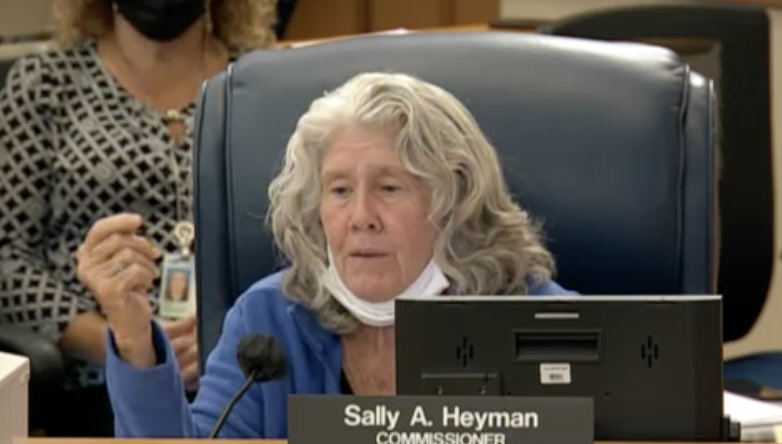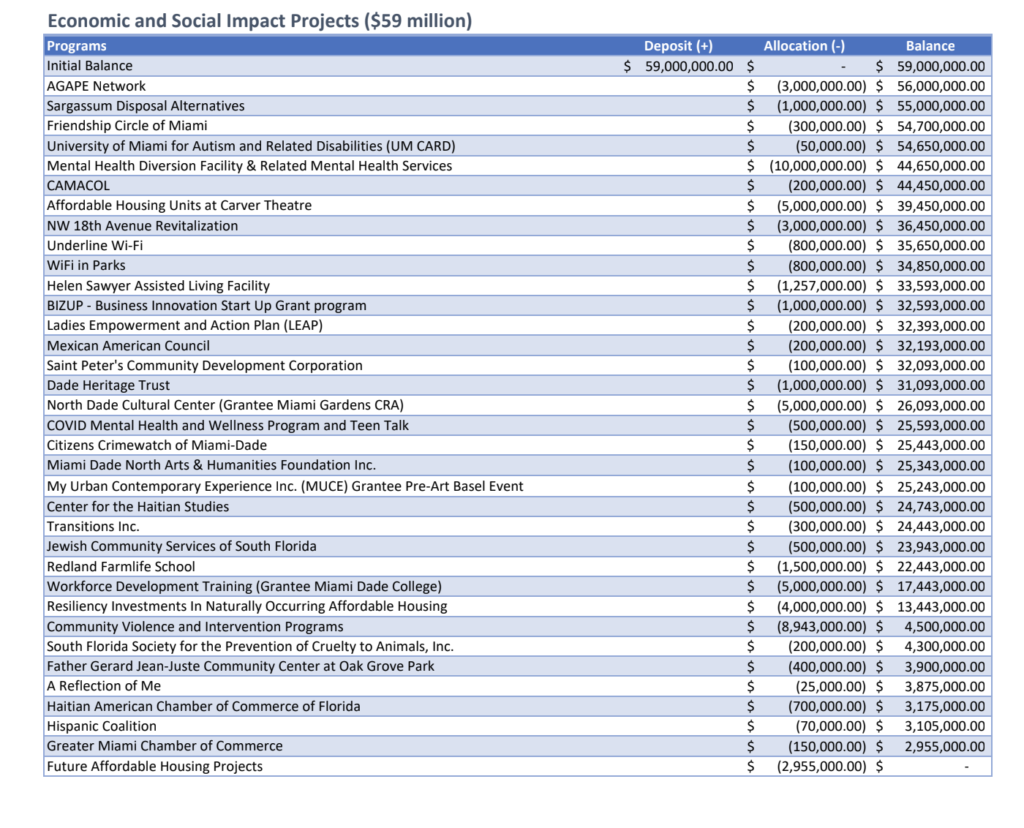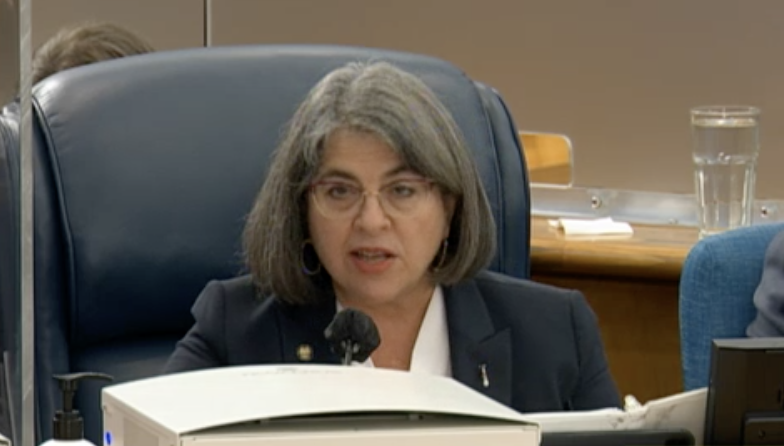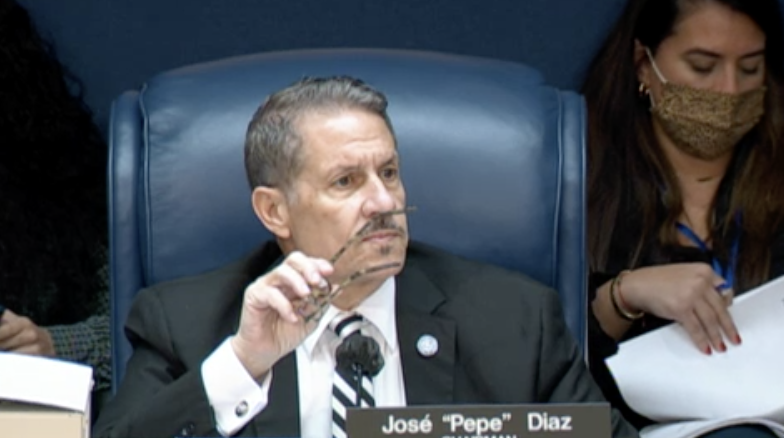County employees get a 2% bonus and a 6% raise
The second and final public hearing on the 2021-22 Miami-Dade budget was another love fest, just like the first hearing earlier this month, with so many congratulations and thank yous that it seemed more like a baby shower than approval of a tiny tax increase and a $9 billion disbursement plan.
Adjustments by the Mayor Daniella Levine Cava and her administration were applauded. Three live and last minute amendments were accepted and approved by everyone. Members of the public thanked the mayor for the participatory process that the Thrive 305 program had accommodated. Some organizations wanted more money, of course — that will never change — but everybody seemed pretty pleased overall. There were no fights.
Except for one awkward moment when Commissioner Keon “Pay to Play” Hardemon tried to strip funds from a Haitian community organization led by another candidate that he beat in April (more on that later), it was all smiles and back pats.
“This has been an unprecedented budget process,” said Chairman Jose “Pepe” Diaz, referring to the amount of participation and the federal American Rescue Plan Act funds that help replace lost revenues and make one-time investments to help the county and the community recover from the COVID-19 pandemic.
Know more: Miami-Dade Commission approves La Alcaldesa’s first tax and water fee hike
Those funds were allocated toward the septic to sewer conversions, affordable housing, mental health services, violence prevention programs, neighborhood infrastructure projects, social services, economic development organizations and cultural programs and facilities.
“It’s probably one of the best budgets we’ve ever had,” said Diaz, and would know because he’s done it 18 or 19 times.
“It was a great process,” said Vice Chair Oliver Gilbert. “The level of openness for us new commissioners, we needed the sunshine meetings.
“And you all listened,” Gilbert told the mayor and staff. “It’s a budget that speaks to housing. It’s a budget that speaks to social services. It’s a budget that speaks to [helping] new Americans, a budget of all manner of projects.”
He also got $5 million to the Miami Gardens Community Redevelopment Agency for a cultural arts center.
Commissioner Kionne McGhee got $250,000 for two extra positions to the Black Affairs board. Commissioner Danielle Higgins Cohen got funding for a farm life school in the Redland.

Commissioner Sally Heyman said she was particularly impressed with the 67 projects countywide that the new Water and Sewer Department director waded her through. Because of his thoroughness, she said, she would be voting in favor of the slight water fee increase.
That 4% increase in water fees — coming to less than $2 a month for the average house — was the only vote on the budget that was not unanimous, with commissioners Diaz, Joe Martinez and Rene Garcia voting against it. But other commissioners who had expressed concerns at the first hearing seemed placated by the payment plan the county has come up with for people in arrears.
The rest of the budget sailed right through. That’s because it truly had “something for everyone,” Levine Cava said.
“I’m extremely proud of this final budget that we’ve assembled this year working in close collaboration with the commission and with the community. For the last two weeks, we’ve been working very, very hard to incorporate the input and the priorities we heard from the community in the first budget hearing as well as all of the feedback that we received from this commission,” La Alcaldesa said.
Know more: La Alcaldesa Levine Cava name Jared Moskowitz as ‘chief’ COVID officer
The new budget now includes, among other things, an additional $59 million to CBOs that provide essential services, including services for vulnerable women and mental health needs, that help our community recover and rebound from the pandemic and neighborhood infrastructure projects, two new housing advocate positions to support both struggling landlords and tenants to prevent homelessness and evictions.

“The budget also includes important investment in our water infrastructure that creates good-paying jobs, take on the crisis in Biscayne Bay and protect our water, which is fundamental to our public health and our economy,” Levine Cava said, adding that the county would continue to seek grants and matching funds for capital improvements and, especially, transit.
“My administration stands ready to seek critical federal transportation funding,” she added. “We are working with the Biden administration to draw down dollars as soon as the infrastructure bill passes, hopefully as soon as this week.
“These funds would be a game changer for our county, accelerating our push to build a more comprehensive, accessible, reliable and climate-friendly transit system in Miami Dade.”
Adjustments also included moving $13 million from the infrastructure improvements program to several commission pet projects: $5 million for neighborhood improvement projects, $5 million for the Ludlam Trail (does the Underline still only get $800K?), $2.1 million for the city of Sweetwater for park expansion and $1 million for the criminal justice information system for, it seems, data scanning.

The $107.9 million balance is set aside for septic to sewer conversion and other resiliency projects. Commissioner Raquel Regalado passed an amendment that put those dollars in the reserve for, mostly, septic to sewer conversions, which is her pet project.
There is $10 million set aside now for the Mental Health Diversion facility and sobriety center being built as an alternative to sending people to jail, $5 million for job training and $1 million to mitigate the enormous amounts of sargassum seaweed washing up on our shores.
Each commission district office gets a discretionary account (read: slush fund) of $2 million.
Other amendments included moving almost $900K from affordable housing like this:
- $200,000 to the South Florida Society for the Prevention of Cruelty to Animals for the rescue and rehabilitation of horses and other livestock.
- $400,000 for cultural programs at the Father Gerard Jean-Juste Community Center at Oak Grove Park
- An additional $100,000 grant (for a total grant of $700,000) to the Haitian
American Chamber of Commerce of Florida to administer activities related to Haitian Heritage Month activities. - A $150,000 grant to the Greater Miami Chamber of Commerce to advocate for and support new businesses.
- A $70,000 grant to the Hispanic Coalition.
- A $25,000 grant to A Reflection of Me, Inc., for cultural programming.
Diaz announced that an additional $82 million in recurring funds were identified by Jennifer Moon, the former budget director in her first year as director of the brand new Office of Police and Budget Affairs under the commission chair.
Know more: Miami-Dade Commission may weaken new strong mayor’s powers on budget
“For the first time, this board has the resources we need to review the budget and make the adjustments our community wants,” Diaz said.
The $82M gave the mayor room to submit change memos that allowed the county to provide a 2% bonus and two 3% cost-of-living adjustments increases (is that a 6% COLA?) for all 29,000 Miami-Dade employees and increased funding for cultural programs, economic development and community based organizations.
But Diaz made sure he shared some of the credit.
“This Board has done an amazing job to make the changes needed so that we can adopt a budget that funds new projects and services.
“This budget is responsible and sustainable,” Diaz said. “We have made sure that funding is available so that our employees can be properly compensated for their outstanding work. We have ensured that important capital projects have been prioritized and funded.

“Our public safety departments have gotten enough money to serve everyone in Miami-Dade County with now four new fire units and five new police classes.
“We also made sure that the organizations and programs that have been supporting our community before and during the pandemic have been given funding to sustain them until our economy bounces back.
“All of these investments, provide jobs and create new opportunities for the future,” Diaz said.
“And finally, we have done all of this without raising the tax rate. Congratulations to us all.”
Welllllllll, not really.
If they didn’t want to raise taxes, the county commissioners would have had to roll back the tax rate so that the property value increases would not affect the annual taxes owed by property owners. They didn’t do that. They raised taxes. Ladra hates it when they try to pull the wool over our eyes.
Still, nobody complained about that or the other fee increases. Except Martinez, but he’s always grumpy.

